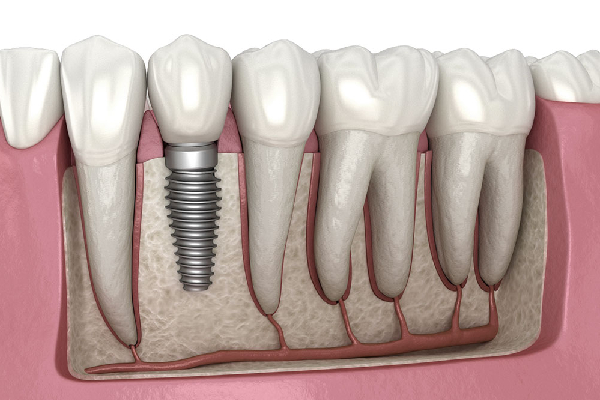
Description: Dental Implants are the perfect solution to replace missing teeth. Form, function, and aesthetics are at the forefront of our dental implant solutions. Single, multiple, or full-mouth dental implants are the best solution to replace damaged or missing teeth with an artificial fixture that looks and feels exactly like a real tooth.
A dental implant is a surgical component that is inserted in the bone of the jaws to support a dental crown, bridge, or denture. It is the ideal way to replace missing teeth. A variable amount of healing time is required for osseointegration, which is the process of the implant integrating with the bone so that it is able to bear the load of chewing. In the presence of healthy tissues, a well-osseointegrated implant with appropriate biomechanical loads can have a very good long-term success rate. Successfully replacing teeth using implants is an extremely 'technique-sensitive' process that requires great expertise.
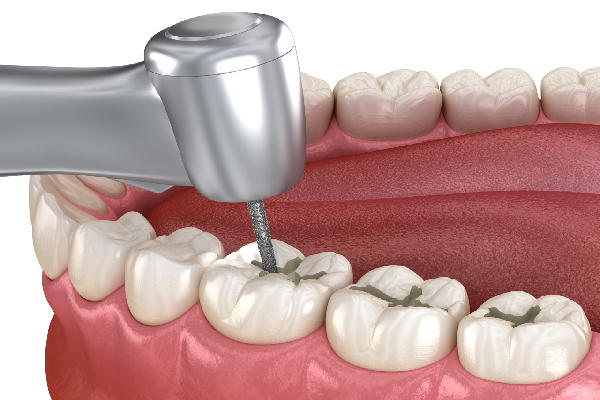
Teeth that have decay need to be restored to their original health as soon as possible so that the decay does not grow into the nerve spaces in the centre of the teeth. Visit your dentist if you have a sensitive tooth, if you see dark brown/black spots, or in case of food getting stuck in a particular space. These could be signs of the cavity.
Composite resin fillings can perfectly match the colour of your tooth giving a natural look. Hence they are the best filling material where aesthetics are a concern. Since they flawlessly match the shade of your natural teeth, they are also called ‘white or tooth coloured fillings’. Made from a combination of plastic resin, fine glass and other materials, this filling material bonds directly to the tooth structure and so requires less removal of healthy tooth structure. Apart from cosmetic areas, it can be used to restore cavities that are small to medium in size in areas of mouth where moderate chewing forces are required. Composite resins tend to stain from tea, coffee or tobacco and are more prone to chip. Generally, composite dental fillings cost more than conventional fillings.

What Is a Root Canal Treatment?
Root Canal Treatment is one of the most common dental procedures performed to treat a severely decayed or damaged tooth. The intention is to save the tooth.
A root canal is a dental procedure designed to treat and save a severely damaged or infected tooth. Inside each tooth is a soft tissue called the pulp, which contains nerves, blood vessels, and connective tissue. When the pulp becomes inflamed or infected due to deep decay or trauma, a root canal is performed. During the procedure, the dentist removes the infected pulp, cleans and disinfects the inside of the tooth, and then seals it to prevent further infection. This helps alleviate root canal pain, save the natural tooth, and restore its function, contributing to the long-term oral health and wellness of the patient.
Why You May Need a Root Canal?
It is important to recognize the symptoms that may indicate the need for a root canal in order to give treatment on time before it worsens.
Benefits of Root Canal Treatment
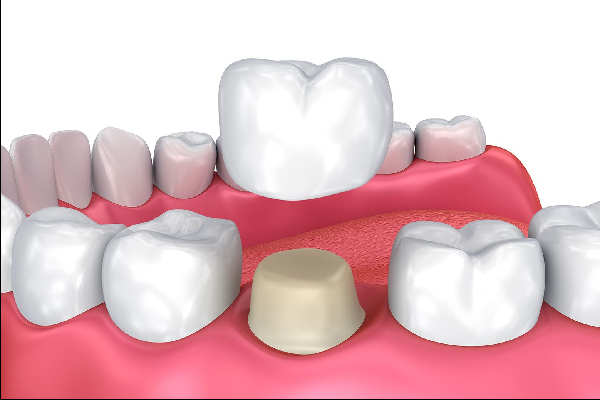
Missing and damaged teeth are unattractive and cause problems in chewing food and speaking. At Signature Smiles, we can help you replace missing teeth in many ways; dental crowns and bridges are among them.
A dental crown is a cap that covers the damaged tooth. It protects, covers and restores the shape of your teeth. Crowns are generally made of metal, porcelain, resin or ceramics. Whether it is the front teeth or the back, a non-differentiable transition is what you should aim for, for a seamless smile. Several factors determine the type of crown such as durability, strength, aesthetics and price.
Dental Bridge covers or bridges the gap created by one or more missing teeth. It takes support from existing teeth or implants to replace a section of missing teeth. A dental bridge helps to prevent the remaining teeth from moving out of place. Once the bridge is placed, it works just like your natural teeth. It helps with chewing, speaking, and maintaining the shape of your face. It is durable and strong because it is anchored to your teeth.
Crowns and bridges are made using the latest CAD/CAM (Computerized) technology from the best materials of world-class quality like Zirconia, e. max, Lava, Bruxzir, Tilite, Ultra T and Porcelain fused to metal (PFM).
Crowns and Bridges are custom-made and aesthetically pleasing to blend in with your natural teeth. Our crown and bridge specialists ensure they provide the best cosmetically pleasing, long-lasting and affordable treatment.
A dental bridge is one option for replacing one or more lost teeth. Bridges, as their name suggests BRIDGE, the space left between two teeth after one was knocked out or pulled. This space was produced when the tooth in question was lost. A bridge is a type of fixed partial denture. This means that it is attached to the teeth, replaces parts of the teeth, and employs a synthetic tooth or teeth (denture) in the space where there should be natural teeth.
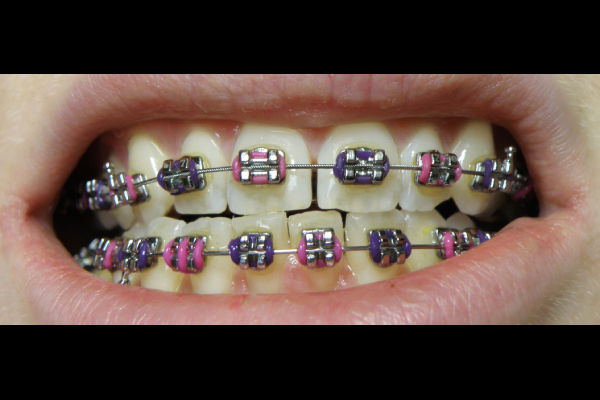
Description: Braces are dental tools that help correct problems like crowding, crooked teeth, or teeth that are out of alignment. In the past, teenagers would commonly get them, but with advancements in technology, adults get them at any age with fabulous results. Braces slowly straighten and align your teeth so you have a normal bite and a beautiful smile.
These can either be Metal or Ceramic. They have been the mainstay of Orthodontics for many years and give consistent results so long as good care is taken of them.

DENTURES
A healthy and confident smile is an essential part of your personality. If you have missing or badly broken down teeth, then dentures can be a way of replacing them. If these are not replaced on time, it can lead to various oral health issues like shifting of adjacent teeth, bone loss, bite problems, and compromised oral function and aesthetics. So, it is essential to replace missing teeth. A great alternative to missing and damaged teeth is dentures. These are removable and natural-looking replacements that can last for a long time and restore function and aesthetics to your mouth.
Patients who have missing teeth or decayed teeth that can’t be saved should replace them on time. Not doing so can lead to severe consequences. Firstly, the teeth adjacent to the space will slowly shift or tilt into the gap left by the missing tooth, leading to bite problems and misalignment. Secondly, the jawbone in the area of the missing tooth can start to wear off, causing bone loss, bite problems, and changes in how the person looks. In addition, the adjacent teeth can start to suffer from wear and tear because of increased pressure on them while chewing or biting. Overall, damage will be caused to the oral function and aesthetics.
Complete Dentures:
Complete dentures are made when all of the natural teeth are missing or removed. Conventional complete dentures are given after the gum tissues have healed, which can take a few weeks. Immediate complete dentures are made in advance and placed as soon as the teeth are removed. As the bones and gums shrink during the healing period after tooth extraction, they need frequent adjustments. Usually, a complete denture takes a minimum of 5 – 7 visits.
Partial Dentures:
Partial dentures are made when a few teeth are missing. They are attached to your natural teeth. They are a removable alternative to the fixed bridges. We also offer Flexible Partials, which are strong yet flexible, light in weight and comfortable.
Implant-supported Dentures:
With advances in dentistry, it is possible to integrate dental implants with dentures. We can provide you with a denture that is supported by implants placed in the jaw bone. These dentures are more effective and attractive as they stay in place, do not slip, and are removable.

Description: Veneers are thin, custom-made shells designed to cover the front surface of teeth to enhance their appearance. They are ideal for improving the color, shape, size, or length of your teeth.
Benefits:
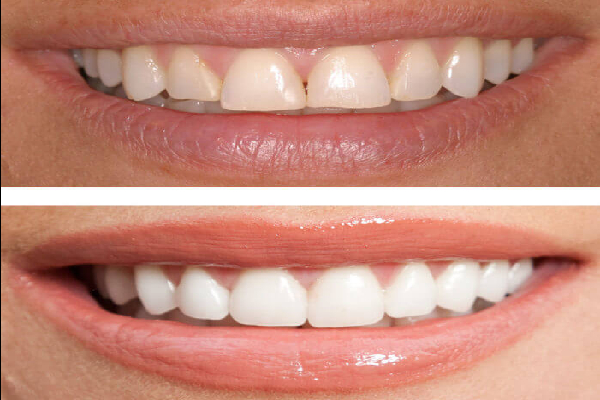
Description: Dental bonding is a cosmetic dental procedure in which a tooth-colored resin is applied to the teeth and hardened using a special light. It is used to repair decayed, chipped, or cracked teeth and to improve the appearance of discolored teeth.
Benefits:
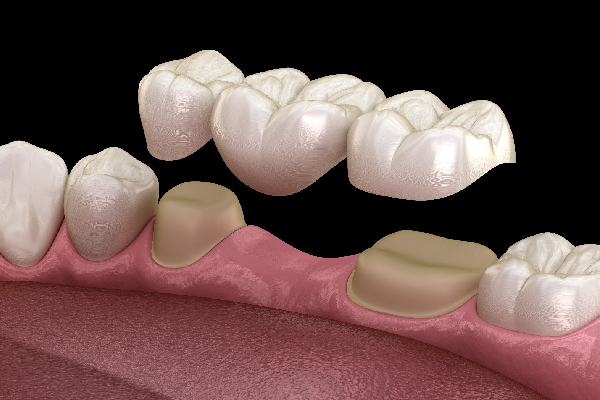
Description: A dental bridge is a prosthetic device used to replace one or more missing teeth. It is supported by natural teeth or implants on either side of the gap. A bridge restores both the appearance and functionality of your smile.
Benefits:

Description: Invisible braces or clear aligners are wafer-thin, transparent aligners that fit snugly on your teeth and gently reposition them to give you the perfect smile. They are used to treat malocclusion such as Crowding, Spacing, Deep Bite etc. They offer you all the benefits of conventional orthodontics and spare you from the inconvenience and awkwardness of metal brackets and wires.
Benefits:
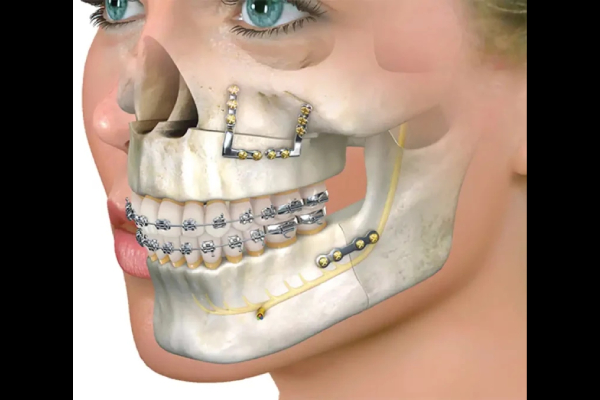
Description: Oral and maxillofacial surgery includes surgical procedures that treat diseases, injuries, and defects in the mouth, jaws, and face. This surgery may involve the removal of impacted teeth, the treatment of jaw deformities, or the management of oral cancer.
Benefits:

Regular dental check-ups and cleanup can prevent a number of dental problems. Regular fluoride treatment strengthens the enamel preventing cavities. A good oral hygiene regime and healthy food habits go a long way in preventing decay and gum disease. Children should be introduced to brushing as soon as teeth appear in their mouth and oral hygiene should be actively supervised till the age of 6 years. Sealants are dental materials used to fill up deep grooves in teeth to prevent decay setting in.
We offer procedures like Tooth Fillings, Pulpotomy, Pulpectomy, Cleaning, Topical Fluoride Application, Extractions, Orthodontic Braces & Clear Aligners, Space Maintainers etc. for our little patients.
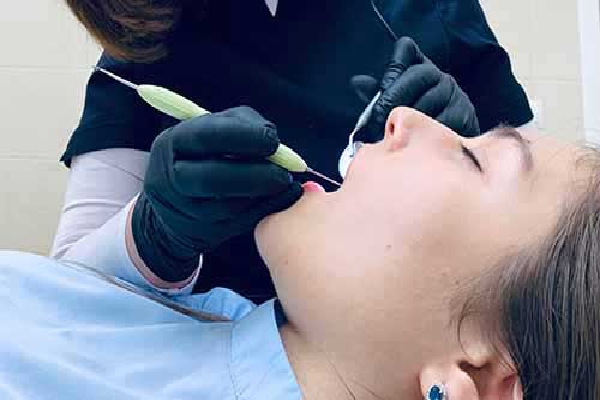
A sparkling smile helps to boost your confidence and make you feel at ease. You should follow some basic oral hygiene practices. These include brushing twice daily with a soft-bristled toothbrush and fluoridated toothpaste and flossing once daily. These practices are essential and play a big part in keeping your mouth healthy.
However, did you know that it is not possible to get rid of plaque and tartar from every nook and cranny of your teeth? Since there is a connection between your dental and overall health, caring for your teeth and gums is all the more important.
We recommend professional dental cleaning to ensure that your teeth and gums stay in perfect condition. This will give you the healthy and beautiful smile you have dreamed of. A professional dental cleaning thoroughly removes plaque and tartar buildup from your teeth.
It’s important that you get your teeth cleaned professionally every six months to keep gum disease and tooth decay at bay. People with already existing gum disease might need cleaning more often to control the disease and halt its progression.
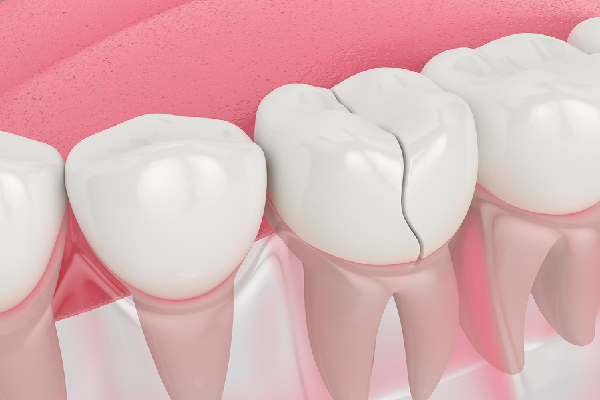
Description: Cracked teeth can be caused by injury, wear, or decay. It can cause pain, sensitivity, and discomfort. Treatment options vary depending on the severity of the crack and may include dental bonding, crowns, or root canal therapy.
Benefits of Treatment:
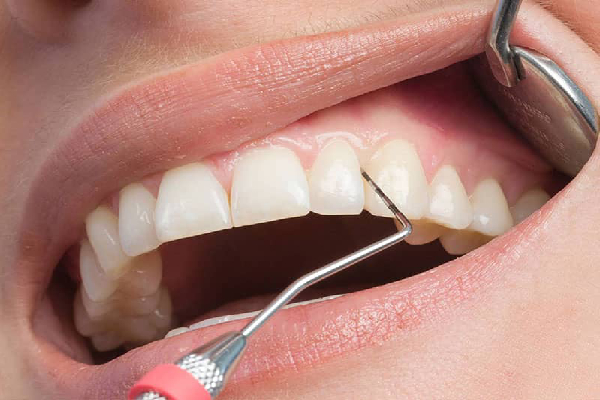
Description: Periodontology is the branch of dentistry that focuses on the structures supporting teeth, such as the gums and bone. Treatments in periodontology can include the treatment of gum diseases like gingivitis and periodontitis, as well as procedures to help maintain healthy gums and prevent tooth loss.
Benefits of Treatment:
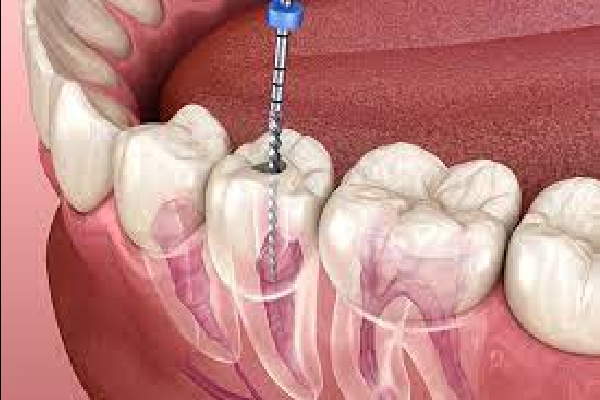
Description: Endodontics is a branch of dentistry that focuses on the treatment of the dental pulp and tissues surrounding the root of a tooth. The most common procedure in endodontics is root canal treatment, which is used to treat infections or inflammation of the pulp caused by decay, trauma, or other conditions.
Benefits of Treatment:
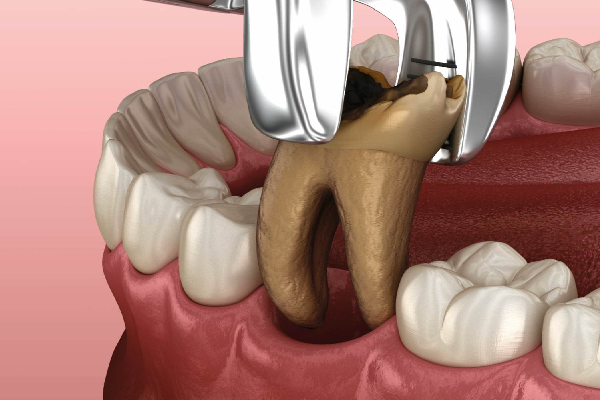
Simple Extractions:
Most teeth visible in the mouth can be removed by simple extraction. In this procedure, the dentist numbs the area around the tooth with local anaesthesia, loosens it, and carefully removes it. It usually takes a few minutes to complete this treatment.
Wisdom Tooth Extraction:
A major dental milestone that usually takes place between the ages of 17 and 25 is the appearance of your third molars. Historically, these teeth have been called wisdom teeth because they come through at a more mature age. When they come through correctly, healthy wisdom teeth can help you chew but if you have pain, see your dentist immediately. Removal could be advised if the wisdom teeth do not have enough space to grow out or if they cause pain and infections.
Surgical Extractions:
In complex cases, surgical extractions remove the teeth that are not easily accessible. Such teeth that are difficult to remove must be taken out in pieces.
A surgical extraction may be needed if:
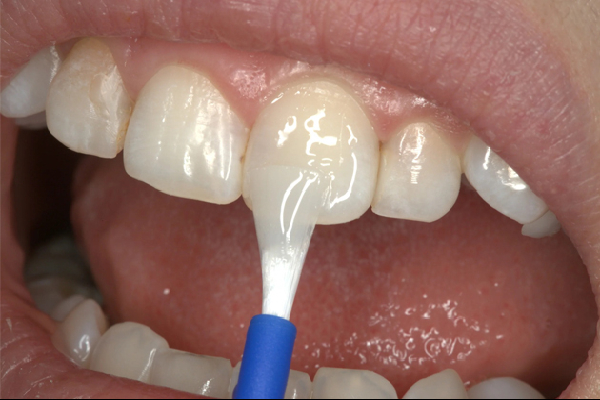
Description: Fluoride treatments are designed to help protect your teeth from decay. The application of fluoride strengthens tooth enamel and makes it more resistant to cavities and decay. It's a quick and easy procedure that can be done at your dental office.
Benefits of Treatment:
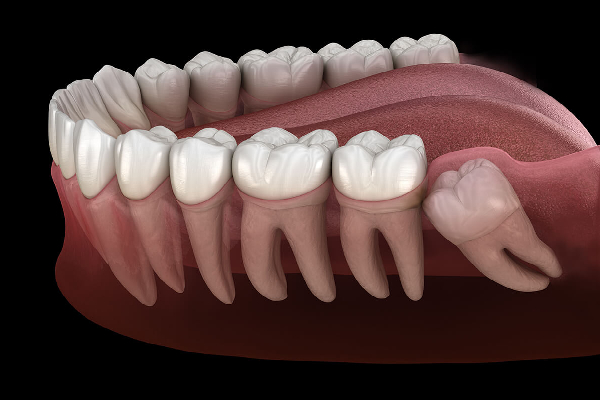
Description: Wisdom teeth are the third and final set of molars that most people get in their late teens or early twenties. If they cause pain or crowd other teeth, extraction may be necessary. Wisdom teeth removal is a common dental procedure.
Benefits of Treatment:
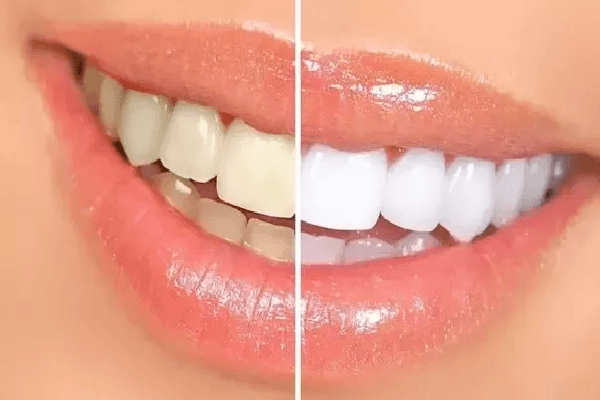
Teeth whitening or teeth bleaching is the process of lightening the colour of human teeth. Teeth become yellowed over time for a number of reasons, and bleaching helps by lightening the intrinsic or extrinsic colour of the tooth enamel. This does not damage the enamel. Some patients can have transient sensitivity which is managed well by desensitizing toothpastes and mouthwashes.
Microscopic intrinsic stains and discolouration present deep within the teeth are responsible for the overall dull or yellowish appearance of your teeth. We professionally remove these stains using a whitening agent. This reacts with the stain-producing substances thereby oxidizing and clearing them completely. We protect your gums and lips with special barriers during the procedure.
Bring back the sparkle in your smile. Transform your dull, stained or yellowish teeth into the perfect set of pearly whites in under an hour.

Increase your sense of confidence and self-esteem with Cosmetic Dental Surgery and Treatment for a complete smile makeover. A smile makes life more beautiful. However, crooked, stained, or missing teeth can lead to people not smiling at all as they are embarrassed of what others will think. Such dental imperfections really affect a person’s self-esteem.
We are dedicated to creating smiles that are beautiful, natural, healthy, long-lasting and comfortable. We use a comprehensive approach known as Smile Design to give you a perfect smile. They examine your mouth and teeth in detail and design a smile that best suits your face. Many aesthetic tooth flaws like stained teeth, chipped, cracked, crooked or rotated teeth and teeth with gaps can be corrected with cosmetic dentistry.
The cosmetic dentistry procedures consist of a variety of treatments. You might need one or a combination of all these treatments.
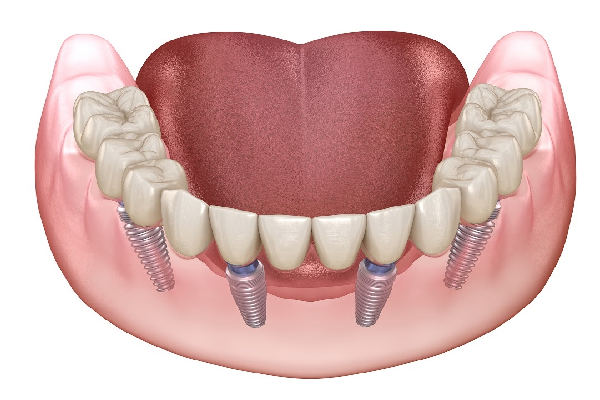
Description: Full mouth rehabilitation is a highly individualized treatment. It helps to optimize the health of the entire mouth, including the teeth, gums, bite, muscles, and joints.
In many cases, it is necessary to replace or restore multiple or all teeth in the mouth using a combination of dental services. These include Dental Implants (Multiple, All on 4, All on 6, Basal/ Cortical/ Conventional), Crown and Bridge, Dentures, etc.
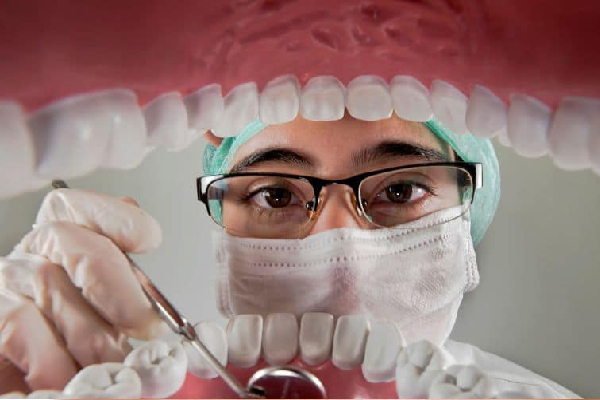
Oral surgery refers to any surgical procedure performed in or around your mouth and jaw. These are performed by a trained Oral Surgeon. The procedures would include removal of impacted wisdom teeth, gum/bone grafts, sinus lift procedures, tooth implants, maxillofacial surgery, tumor removal, jaw and teeth repair following an injury, among others.
Facial injury repair: Oral surgery is often used to repair fractured jaws and broken facial bones.
Lesion removal and biopsy: Oral surgeons can take a small sample of abnormal growth or tissue and then send it for laboratory testing for identification. Some lesions can be managed medically or can be removed by the oral surgeon.
Cleft lip and cleft palate repair: Cleft lip and cleft palate result when all or portions of the mouth and nasal cavity do not grow together properly during fetal development. The result is a gap in the lip and/or a split or opening in the roof of the mouth. Oral surgeons work as part of a team of health care specialists to correct these problems through a series of treatments and surgical procedures over many years.
Facial infections: Pain and swelling in the face, neck, or jaws may indicate an infection. Infections in this area of the body can sometimes develop into life-threatening emergencies if not treated promptly and effectively. An oral surgeon can assist in diagnosing and treating this problem. Surgical treatment, if needed, may include cutting into and draining the infected area, as well as extracting any teeth that might be involved.
Frenectomy: Frena are small folds (also called “bands”) of tissue located in the mouth: under the tongue, inside the upper lip, inside the lower lip and connecting the cheeks to the gums. A frenectomy is a simple surgical procedure to loosen or release these bands. An oral and maxillofacial surgeon (OMS) typically performs a frenectomy to increase the range of motion of the tongue (removing the lingual frenum) or to close a gap in a patient’s upper front teeth (removing the labial frenum). Frenectomies can be performed via scalpel, electrosurgery or laser surgery.
Alveoloplasty: An alveoloplasty is a surgical procedure that reshapes and smoothens out the jaw where a tooth or teeth have been extracted or lost. When a tooth is extracted, the socket (the hole where the tooth was located) heals over the course of several weeks. However, once healed, the area may not be ready for a replacement such as a denture, bridge or implant. The healed area is called an edentulous ridge, and it may be uneven or bumpy, which will not allow for a nice fit of the replacement tooth or teeth. Smoothing out the jawbone prepares the mouth for successful placement of the new, artificial tooth.
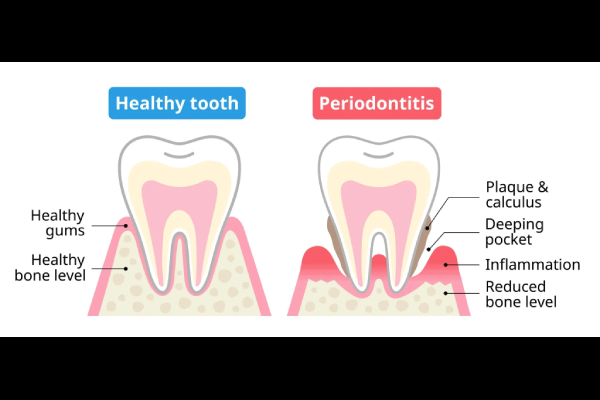
The leading cause of gum disease is a lack of oral hygiene. Systematic causes may result in gum disease and vice versa. People with cardiac disease, joint replacements and similar conditions are advised to get regular cleaning done so that there is less chance of bacteria entering their bloodstream through the gums and causing harm.
Gum Depigmentation: Black pigmentation on gums can be removed with Laser, resulting in pink gingiva. The gums could have our body's pigment Melanin as well. This is natural, however, it may seem disturbing to the eyes if the gums are very visible and dark, so depigmentation procedures are recommended.
Crown Lengthening: People having a gummy smile with short crowns are effectively treated by Gingivectomy, which results in lengthening of the crown, resulting in a beautiful smile.
Other treatments offered are Flap Surgery, Bone & Collagen Grafts, Pocket Debridement, etc.
Offering comprehensive dental care with state-of-the-art technology and a team of experienced professionals dedicated to your oral health.
Green View Apartment, Complex, Bhanu Nagar Main Rd, behind Vishal Cinema, near Sai Hospital, Ward 43, Dasrath Pally, Bhanu Nagar, Siliguri, West Bengal 734001
+919475439414 | +919434669507 | +919832079530
dentalclinicgreenview@gmail.com
Monday to Saturday:
10:30 AM - 2:00 PM
4:00 PM - 8:00 PM
Sunday: Closed
Copyright © 2025 Green View Dental Clinic
Designed by Shloka Technologies
